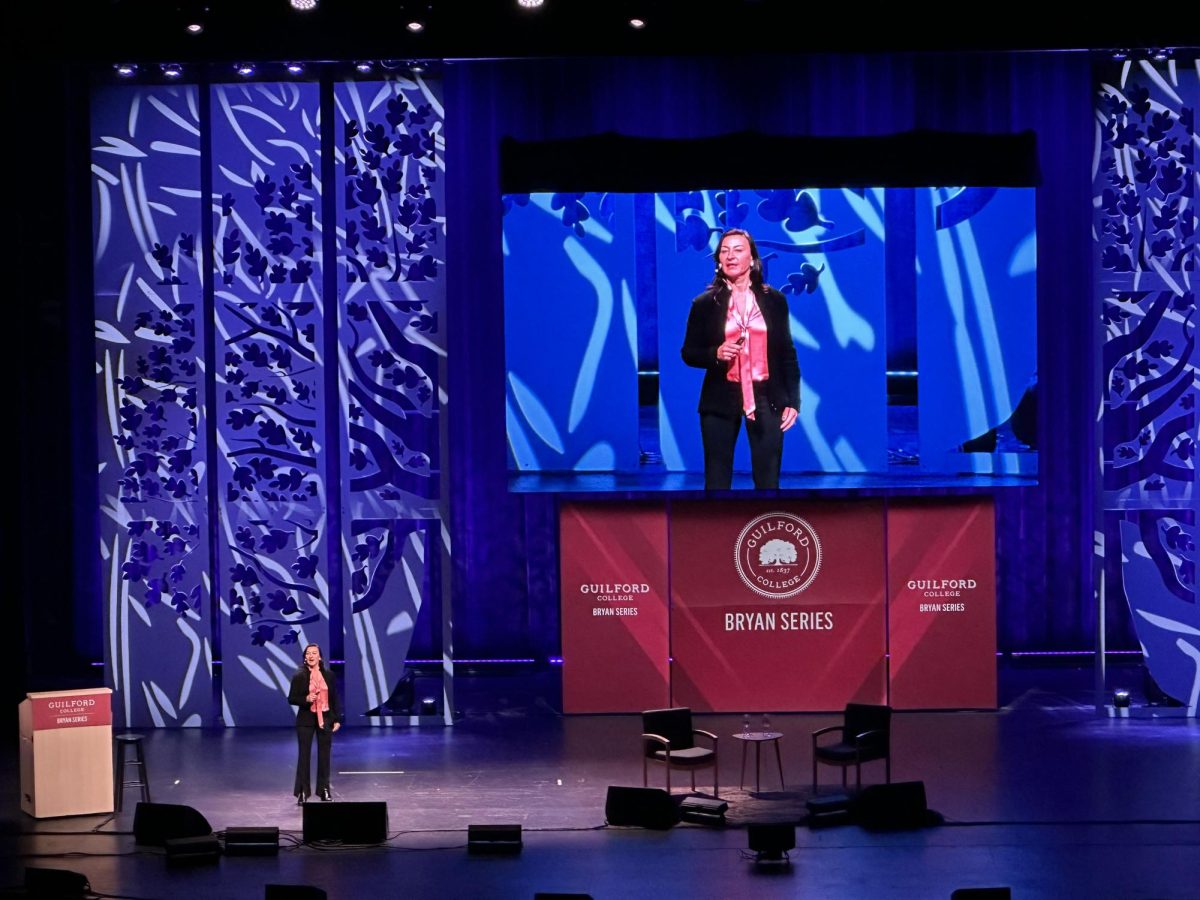“We need more awareness that there is a labor problem at Guilford,” said Scott Gibson, a current adjunct professor in the English department who has been at the College since 2010.
You may not be able to tell which professors are full-time and which are adjunct. These titles, however, mean very different things.
Contingent, often referred to as adjunct, faculty are part-time workers hired semester by semester. They have no job security, no benefits and are paid far less than full-time professors.
Dana Professor of Psychology Richie Zweigenhaft is working on a report with the American Association of University Professors about Guilford’s adjuncts.
The report reveals contingent faculty made up 51 percent of the teaching body in 2012. At Guilford’s peer and aspirant institutions, adjuncts make up, on average, 34 percent and 28 percent respectively.
Reducing the number of contingent faculty was, according to Academic Dean and Vice President Adrienne Israel, one of her “number one goals” when taking office.
Yet, adjunct faculty teach 38.9 percent of Guilford’s four-credit courses, usually teaching one to two classes. Adjuncts are not obligated to advise students; however, as Gibson explained, “It happens because you build rapport with students.”
In addition to teaching and completing his dissertation, Gibson has helped students by writing recommendations, assisting with job or study abroad applications and advising.
Parag Parker, director of the writing program, hires and trains part-time faculty in her department.
“Teaching writing is incredibly time-consuming, not just in the lesson planning, but in the grading and conferencing our pedagogy requires,” said Parker in an email interview.
This is unpaid labor for adjuncts.
Originally, institutions hired contingent faculty because a department lacked an expert in a specific field or area.
However, colleges across the county have increased their dependence on adjuncts exponentially. In his address to allies of the Adjunct Faculty Association of the United Steel Workers, Noam Chomsky explained this shift as “part of a corporate business model designed to reduce labor costs and to increase labor servility.”
A former Guilford adjunct professor who now has a full-time, non-tenure-track position at a different university told The Guilfordian in an email interview teaching at Guilford was “enjoyable, respectful and low-paying.”
She was paid less because her classes did not fill up but enjoyed working with students individually. Her Guilford position was her lowest paying and she feels more fairly compensated in her new job.
The deciding factors in rehiring an adjunct depend on classroom observations and student evaluations. According to Gibson, this can push adjuncts to exceed their job description by “going the extra mile to work with students to make sure they are doing well and satisfied in the class.”
They are not compensated for this.
In Guilford’s writing program, courses are four credits, requiring more teaching time than most institutions with three-credit courses.
This makes working another job difficult. Many adjuncts, like Gibson, rely on partners’ incomes and benefits to maintain a living.
“There is a reasonable expectation that I will at least get a class, but it’s not guaranteed up until you get a contract a few weeks before the semester starts,” said Gibson.
Parker believes adjuncts are invaluable.
“Part-time faculty is absolutely essential,” said Parker. “They teach the majority of writing classes at our institution, generally thought of as the hardest classes to teach.”
However, Parker sees the effects of their employment status.
“The fact that their pay is so low affects how much time and energy they can devote to Guilford and their students because they are working several jobs at once to make ends meet,” said Parker.
This is the hidden cost of Guilford’s dependence on part-time labor.
“If we draw too heavily on contingent faculty … it might cost us in terms of the quality of student-faculty interaction, where Guilford sells itself and thrives on,” said Zweigenhaft.
Israel shared similar concerns.
“Our students expect our faculty to be available all the time, and part-timers just can’t be,” said Israel.
Adjuncts’ employment status forces them into a balancing act, leaving students unguided or employees overworked and under-compensated.
Professors’ accessibility and time to develop close relationships with students make Guilford’s education rich and unique. Without a return to the original purpose of contingent faculty and improved working conditions, Guilford’s reputation as an intimate community could suffer.







Jack Longmate • Apr 7, 2014 at 12:08 am
Not only does reliance on adjuncts who are provided poverty-level wages undermine educational quality because, to quote Parag Parker, it “affects how much time and energy they can devote to … their students because they are working several jobs at once to make ends meet,” it also teaches a fundamental lesson in values: our society does not value equality but elitism.
Even thought the grades and credits awarded by adjuncts have the same value as those awarded by full-time instructors, and even though there is no tuition discount for those enrolling in their classes, adjunct pay is significantly discounted.
Such reliance on adjuncts also would seem to be a violation of the 1948 Universal Declaration of Human Rights, which affirms that workers should be reasonably free from unemployment and should enjoy equal pay for equal work. Adjunct faculty are certainly not free from unemployment, generally becoming unemployed at the end of every term, and adjuncts certainly do not have equal pay for equal work.
Jack Longmate
Adjunct English Instructor
Olympic College, Bremerton, Washington